Your cart is currently empty!
Expand your installations into the EV charging market
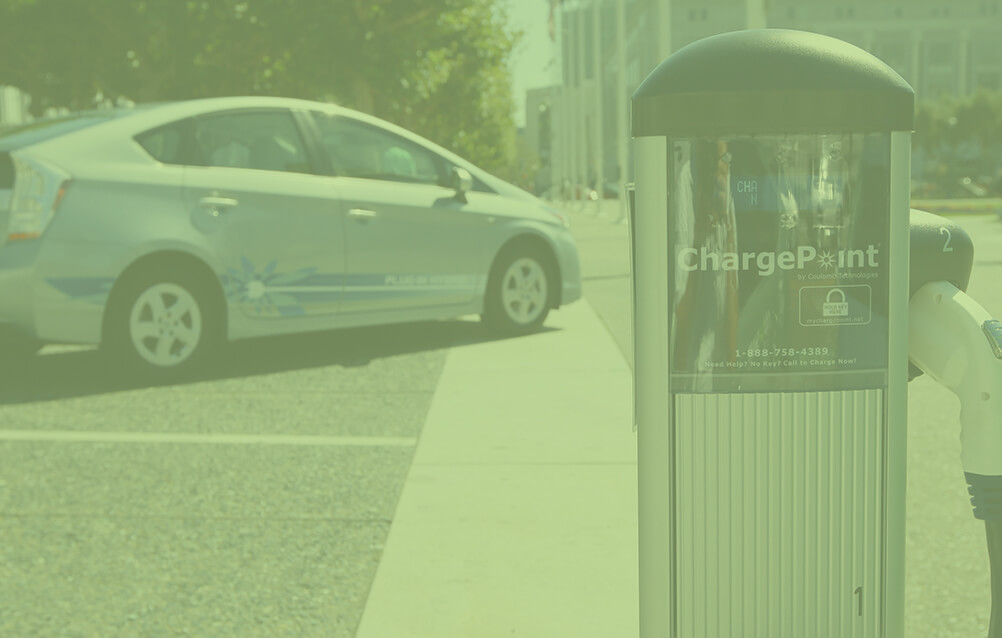
Electric vehicles have come a long way over the past few years in a large part due to their ubiquity, improved battery technology and advances in charging. Like conventional gas stations, EV charging stations, parking spaces and kiosks spread around the country are paramount to the success of all electric vehicles whose owners have long commutes or plan to travel out of town regularly. So how do electrical installers expand into this EV charging market?
Electrical installers looking to branch out into the growing world of EV charging stations must ask these questions:
Which level of EV charging?
Where are you installing the EV charger?
Do you require a wireless data link?
Once your customer specifies the level of EV charger installation required, the installation work begins. Choosing the right site or optimizing an existing site can only be accomplished by measuring wireless cellular signals for their RSCP and Ec/Io for 3G base stations. If the data plan cost structure calls for 4G, you must measure RSRP, RSRQ and RSSI signal strength. No need to learn all of these acronyms and wireless engineering know-how because Octopus will do it for you. Octopus is a dedicated, handheld receiver designed to survey all cellular base stations in the area and find the strongest one. Octopus can also help installers migrate their data plans from 3G to 4G.
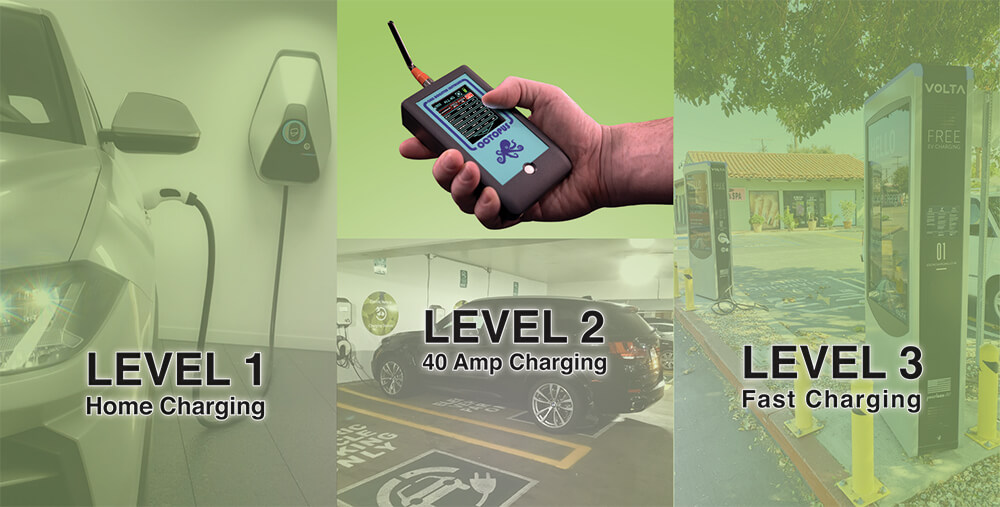
LEVEL 1: HOME CHARGING
Home EV charging installations require no special hardware or skills. Just install an EV charger in a convenient and weather resistant area such as a garage, carport or under an awning adjacent to a nearby 110 VAC 3-pronged outlet. These chargers do not provide much output so expect overnight charging. No wireless data links are needed for your home EV charger but what about your Internet connection? Many homes and small businesses have adopted cellular boosters to fill in where their carrier’s coverage has failed. Consider Octopus™ cellular installation tool for your customers with poor cellular coverage.
LEVEL 2: 40 AMP CHARGING
Level 2 EV chargers require their own circuit of 40 amps at 240 VAC for a moderately fast charge time of 3-4 hours for typical EVs. These private or public, paid charging areas allow for longer charging times and are typically located in public parking garages or private parking spaces allocated for employees with EVs. A growing number of EV manufacturers are even including level 2 chargers with new car purchases. Some level 2 charging sites provide hardwired data or local wireless links but many do not. EV charging sites require a constant, low bandwidth cellular data connection similar to most IoT (Internet of Things) consumer devices. Constant connectivity requires advanced cellular data surveys to determine the best wireless carrier, best location to avoid RF interference and the best antenna alignment for consistent data throughput. Measurements like these necessitate dedicated receivers like Octopus™ cellular installation tool. Dedicated, professional tools like these pay for themselves very quickly and minimize costly rollouts and maintenance visits.
LEVEL 3: FAST CHARGING
Industrial grade EV charging stations are designed to maximize flow-through by providing fast charging in public areas with limited space. They can deliver 480V DC power over heavy duty lines but rely on wireless data connectivity to manage output and charge customers. Popular EV charging brands include ChargePoint® and Tesla® Superchargers among many others. Installers working for any of these brands or independent electrical contractors looking to expand their customer base all need dedicated tools. Every professional EV charging installer should be armed with a sensitive receiver like Octopus™ for accurate site surveys and precise antenna alignments.
With standards like 5G just coming online now, wireless cellular networks are only becoming more integral to the expansion of IoT monitoring, payment and communication systems. Electricians and installers need to educate themselves on these basics if they want to secure careers in the future. Learn more about choosing the right 4G wireless carriers.
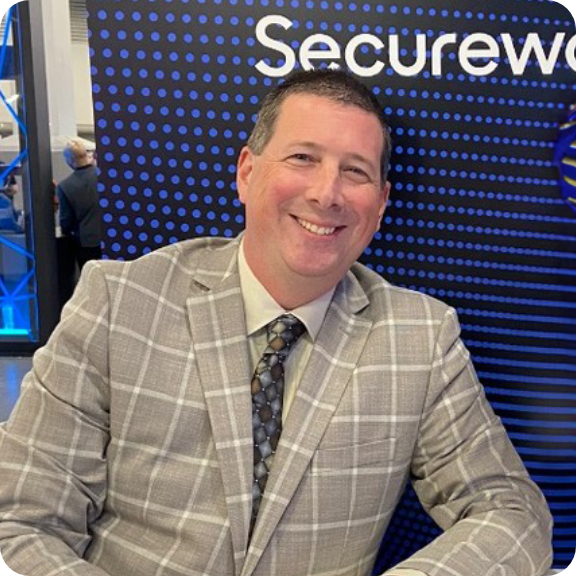
Scott Schober
CEO | Author | Speaker at Berkeley Varitronics Systems
Scott Schober presents at cybersecurity and wireless security conferences for banking, insurance, transportation, construction, telecommunications and law enforcement industries. He has overseen the development of dozens of wireless test, security, safety and cybersecurity products used to enforce a “no cell phone policy” in correctional, law enforcement, and secured government facilities. Scott regularly appears on network news programs including Fox, Bloomberg, Good Morning America, CNN, MSNBC, NPR and many more. He is the author of 'Senior Cyber', 'Cybersecurity is Everybody's Business' and 'Hacked Again', the “original hacker’s dictionary for small business owners” - Forbes Magazine.
Our Newsletter
Lorem ipsum dolor sit amet, consectetur adipiscing elit. Aliquam mattis ligula vitae leo scelerisque, sit amet feugiat ex venenatis.
"*" indicates required fields
Latest Posts
Our Best Sellers
How can we help?
Lorem ipsum dolor sit amet, consectetur adipiscing elit. Nunc dictum aliquet justo sit amet consectetur. In tempor lobortis ante vitae ornare. Praesent feugiat magna at tempor consequat. Aenean in iaculis libero, aliquam imperdiet mi.

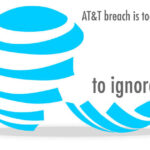

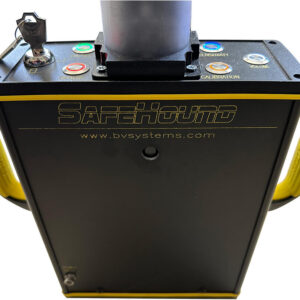
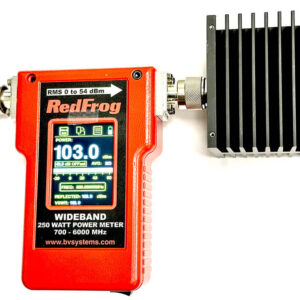
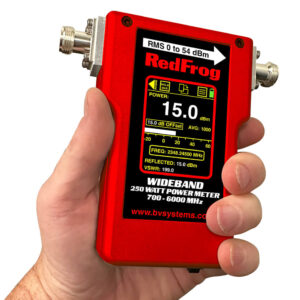
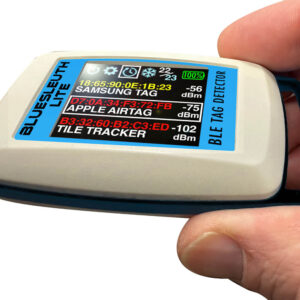
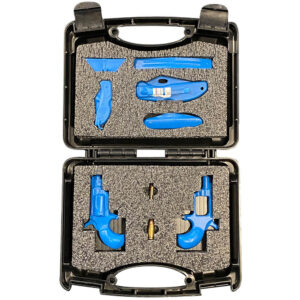
Leave a Reply